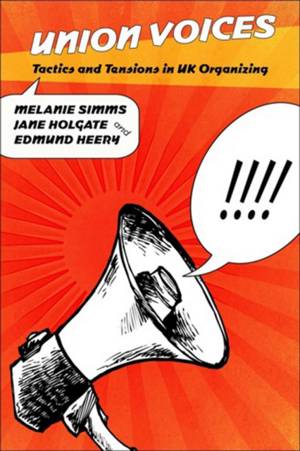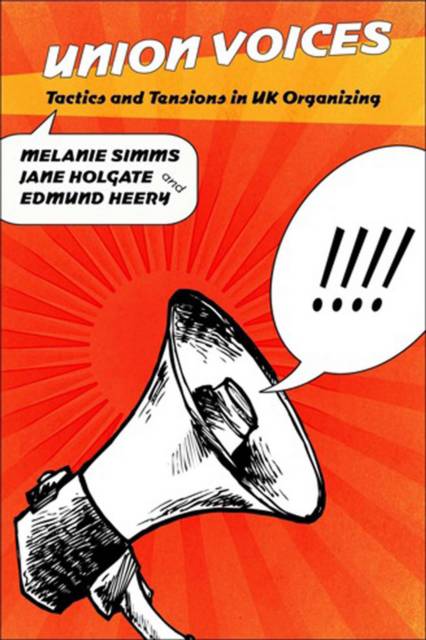
- Retrait gratuit dans votre magasin Club
- 7.000.000 titres dans notre catalogue
- Payer en toute sécurité
- Toujours un magasin près de chez vous
- Retrait gratuit dans votre magasin Club
- 7.000.0000 titres dans notre catalogue
- Payer en toute sécurité
- Toujours un magasin près de chez vous
Union Voices
Tactics and Tensions in UK Organizing
Melanie Simms, Jane Holgate, Edmund HeeryDescription
In Union Voices, the result of a thirteen-year research project, three industrial relations scholars evaluate how labor unions fared in the political and institutional context created by Great Britain's New Labour government, which was in power from 1997 to 2010. Drawing on extensive empirical evidence, Melanie Simms, Jane Holgate, and Edmund Heery present a multilevel analysis of what organizing means in the UK, how it emerged, and what its impact has been.
Although the supportive legislation of the New Labour government led to considerable optimism in the late 1990s about the prospects for renewal, Simms, Holgate, and Heery argue that despite considerable evidence of investment, new practices, and innovation, UK unions have largely failed to see any significant change in their membership and influence. The authors argue that this is because of the wider context within which organizing activity takes place and also reflects the fundamental tensions within these initiatives. Even without evidence of any significant growth in labor influence across UK society more broadly, organizing campaigns have given many of the participants an opportunity to grow and flourish. The book presents their experiences and uses them to show how their personal commitment to organizing and trade unionism can sometimes be undermined by the tensions and tactics used during campaigns.
Spécifications
Parties prenantes
- Auteur(s) :
- Editeur:
Contenu
- Nombre de pages :
- 208
- Langue:
- Anglais
Caractéristiques
- EAN:
- 9780801478130
- Date de parution :
- 15-10-12
- Format:
- Livre broché
- Format numérique:
- Trade paperback (VS)
- Dimensions :
- 152 mm x 226 mm
- Poids :
- 272 g

Les avis
Nous publions uniquement les avis qui respectent les conditions requises. Consultez nos conditions pour les avis.






